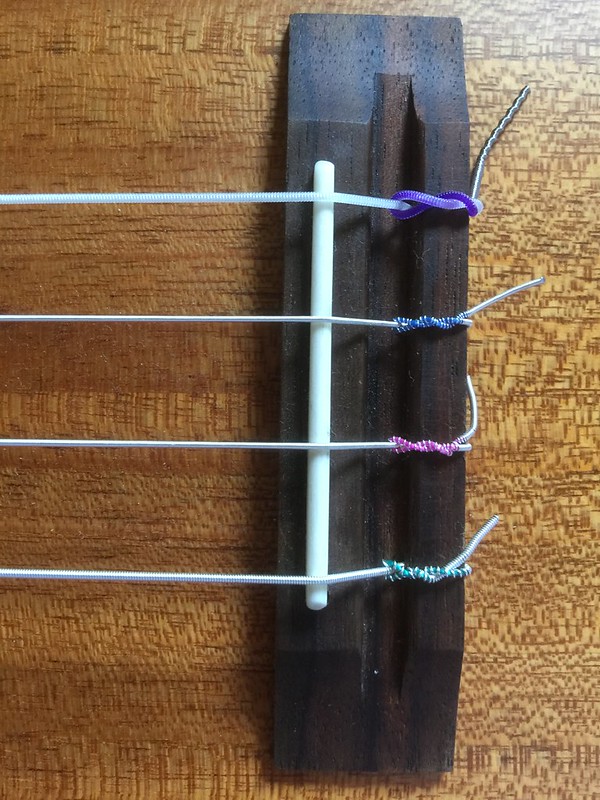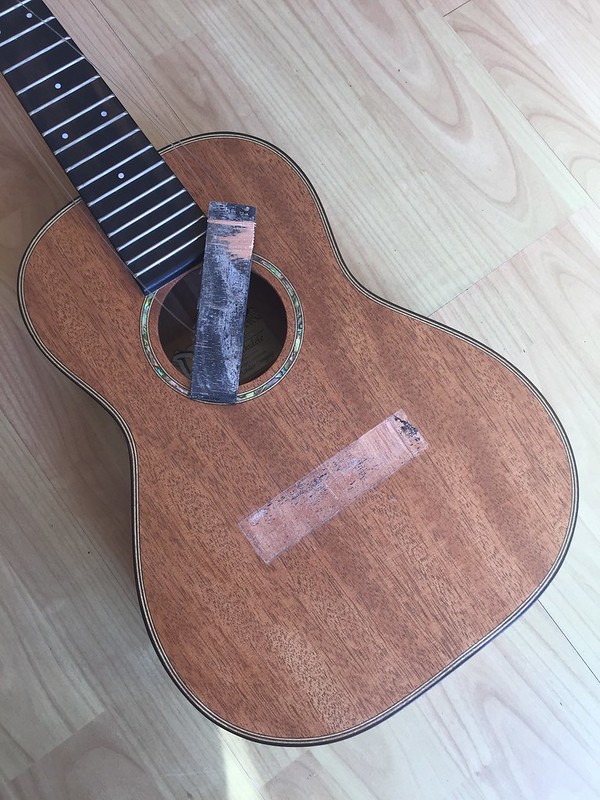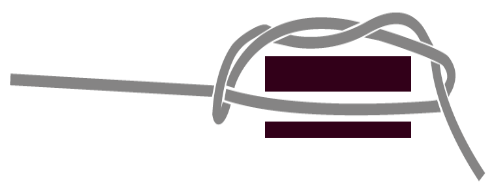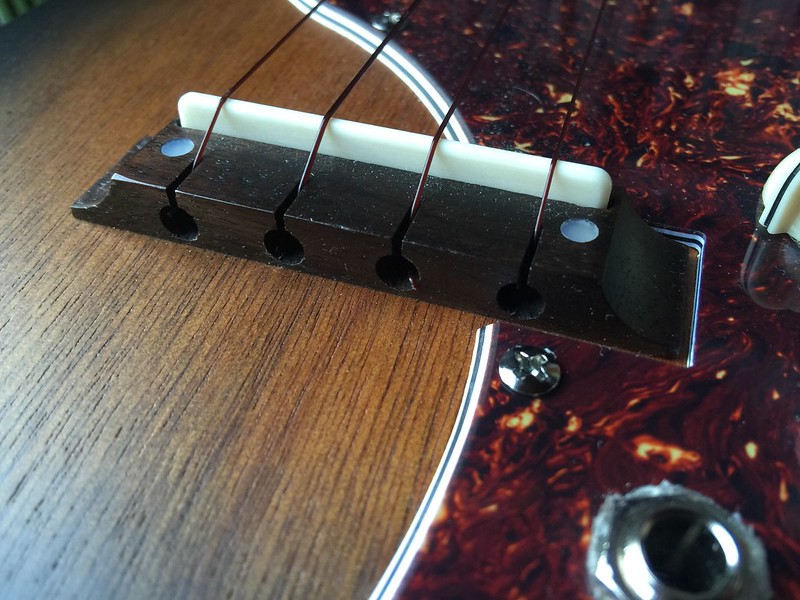bridge
- The bridge is a part (mostly made of rosewood) on the top of an ukulele, usually behind the sound hole, to which the ends of the strings are attached. In contrast to violins, it is typically glued or doweled to the top and therefore immovable. Doweling is common with mass products because it is cheaper. It may, however, cause cracks in the top in case of substantial variations in temperature. On the other hand, at high temperatures, glue can dissolve and the bridge can get off the top.
The exact positioning of the bridge on the top is decisive for pitch accuracy and intonation of an ukulele. Correction is achieved by compensation. - Bridge also designates a part of a musical composition; see bridge (music).
Tie Bar Bridge
Tie Bar Bridge
The strings are run through drill holes in the bridge and knotted with a bow tie.
Pin Bridge
Pin Bridge
As with many guitars, the strings of some Ukuleles end in pins that are fixed behind the bridge with ball-ends.
Changing strings on an ukulele with pin bridge
Slotted Bridge
Slotted bridge
The ends of the strings are fed through slots in the bridge and fixed with knots. The tension of the strings keeps them in place. Changing strings is therefore straightforward; but when tension is reduced too much, the strings can pop out from the bridge.






